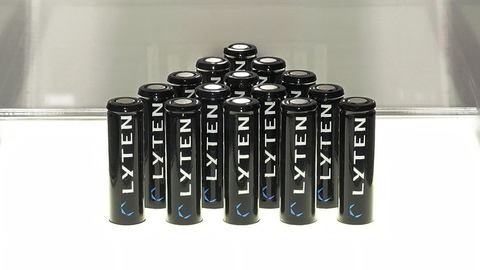SAN JOSE — Lyten, the supermaterial applications company and developer of Lithium-Sulfur battery technology, announced that its rechargeable lithium-sulfur battery cells have been selected to be demonstrated aboard the International Space Station (ISS). The Department of Defense’s innovation hub, the Defense Innovation Unit (DIU), is funding the work scope as part of its ongoing lithium-sulfur development and production-focused relationship with Lyten.
Under the terms of the agreement, the DIU is providing the funding for Lyten and its integration partner, Spacebilt/Skycorp, to test rechargeable lithium-sulfur cells for use in satellites, space suits, and extravehicular activities, among other applications. The batteries will be tested under launch, orbital, and recovery conditions. At the conclusion, Lyten targets to have its cells flight-certified and verified as space-compatible, allowing for inclusion in a wide range of space applications.
“The process for inclusion of batteries for testing on the International Space Station is a highly competitive one and a necessary step to enable broad adoption of lithium-sulfur for space applications. We are honored by the selection of Lyten’s lithium-sulfur cells,” said Dan Cook, Lyten Co-Founder and CEO. “We believe the high gravimetric energy density and light weight of our lithium-sulfur cells make them a perfect fit for current and future space applications.”
The project intends to launch to the space station under ISS National Lab sponsorship, and through a NASA-funded commercial resupply services mission to the orbiting outpost. Lyten plans to qualify three different cell formats on the ISS, including pouch and two-sizes of cylindrical cells.
Celina Mikolajczak, Lyten Chief Battery Technology Officer, said, “The rapid growth in low earth orbit satellite deployments in support of communications and the expansion of the broader space economy create a very compelling use for high-energy density, lithium-sulfur battery cells. These are applications where weight and reliability are of critical importance.”
Ratnakumar Bugga, Senior Fellow at Lyten with 34 years of space battery R&D experience added, “Lithium-sulfur battery technology development was originally funded by NASA to extend Astronaut’s extravehicular activity to 8 hours versus the 4 – 5 hours possible with existing lithium-ion batteries. Lyten now has the opportunity to validate this technology on the ISS.”
Lyten recently announced a partnership with AEVEX to demonstrate unmanned air vehicles (UAVs) powered by Lyten lithium-sulfur batteries, the first aerospace application for lithium-sulfur technology. Lyten’s cells feature high energy density, enabling up to 40% lower weight than lithium-ion and 60% lower weight than lithium iron phosphate (LFP) batteries. This performance advantage makes Lyten’s battery cells ideal for a wide range of industries, including automotive, space, aerospace, UAVs, micromobility, defense, and consumer electronics.
Lyten’s batteries are currently manufactured in San Jose, CA in both pouch and cylindrical formats. The cells are designed to use locally sourced materials and are fully manufactured in the US, making them compliant with the Inflation Reduction Act, the 2024 National Defense Appropriations Act, and not subject to tariffs on electric vehicles, batteries, and critical minerals imported from China.


